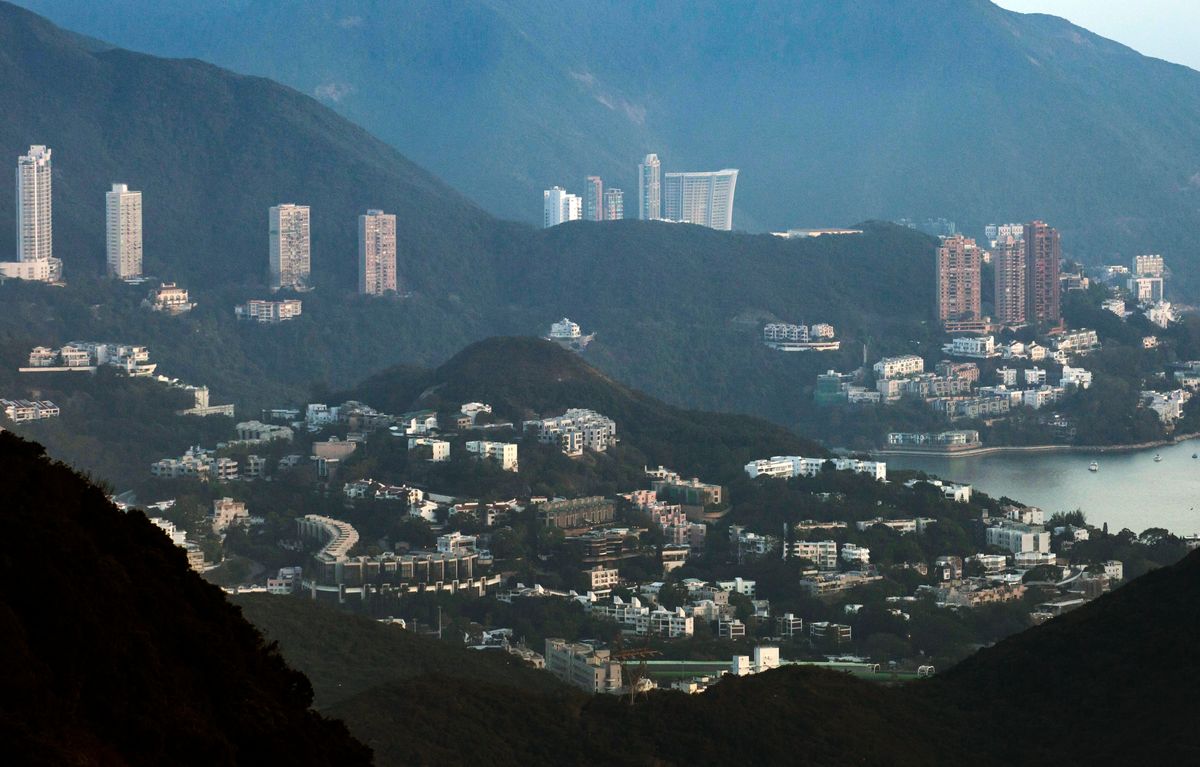The US government owns billions of dollars worth of property in Hong Kong. Will it be impacted by tensions with China?

A few minutes every morning is all you need.
Stay up to date on the world's Headlines and Human Stories. It's fun, it's factual, it's fluff-free.
According to reports, the United States government owns a portfolio of HK$41 billion (approximately US$5.2 billion) in Hong Kong property, including its Consulate-General office which alone is valued at HK$24.7 billion (approximately US$3.2 billion).
However, with the introduction of the city’s controversial National Security law earlier this month, which some Western governments around the world say is repressive, tensions between the US and China are on the rise.
American businesses in Hong Kong are reacting to the situation with some level of concern. In a recent survey conducted by the American Chamber of Commerce, 76% of respondents (out of 183 companies in total) said they were “somewhat” or “extremely” concerned about the new legislation.
While 65% said the law would not impact their plans to stay in the city, a significant percentage of American businesses (35%) said they would consider relocating capital, assets or operations out of Hong Kong.
As for the property market, reports indicate that developers are trying to target Hong Kong investors who might wish to move assets abroad by increasing social media ads directed toward attracting foreign investments.
Public polling data indicates that many Hong Hong residents are feeling uneasy about life in the city.
Polling from the Hong Kong Public Opinion Institute, an independent agency, noted in February that just under 70% of Hong Kongers said they were not confident in Hong Kong’s future. In a separate poll released earlier this month but taken before the security law was announced, about half of respondents said they would consider leaving the city.
For US property specifically, which consists not just of government buildings but also villas and luxury flats, growing tensions and unease about the viability of these assets over the long term could induce pressure to sell.
Still in the game
A State Department email in late May revealed that the US government has already decided to sell property in Hong Kong worth some US$1.8 billion earlier this year.
In the email obtained by Bloomberg, a State Department representative said that the agency “regularly reviews the US Government’s overseas real estate holdings as part of its global reinvestment programme.”
They noted, however, that the US government was also funneling money into maintaining and enhancing other properties in the city, suggesting that there were no plans to totally abandon its property assets in Hong Kong.
Could China put pressure on US assets?
Although billions of dollars worth of US property remains firmly planted in the city, uncertainty and tensions between the US and China have increased substantially over the past several months.
While there are no immediate indications that US property could be in legal jeopardy in Hong Kong, high-profile disagreements between the two powers could impact American dealings in the city more generally.
There are already reports that Hong Kong officials with assets on American soil are being affected. Earlier this week the Trump administration signed a bill to impose sanctions on individuals responsible for drafting and implementing the new security law.
For at least two Hong Kong officials with property in the US, Bernard Chan and Laura Cha, reports indicate that under the sanctions regime they are barred from “investing, transferring, exporting, withdrawing or dealing with any property or interests in property in the US.”
While most of the sanctioned individuals report having no properties in the US, one Hong Kong government official, Regina Ip, argued that the language in the bill was very broad and could have a range of impacts on those individuals and their families.
“Surely there would be a chilling effect, as some officials may have sent their children to the US for study, or would like to travel to visit relatives,” she said
According to Carrie Lam, Hong Kong’s chief executive, the sanctions regime will not impact her personally. “I have no assets in the US, and I don’t particularly like going to the US. If they won’t grant me a visa, then I will just not go there,” she said after the bill was announced.
Although the Chinese government recently announced its own sanctions regime against several US officials amid disagreements over alleged human rights abuses in Xinjiang, the move was largely symbolic as none of the individuals, including Senators Marco Rubio and Ted Cruz, have any financial assets or liabilities in China.
With tensions on the rise and China showing a willingness to react to US pressure in kind, US businesses, assets and property in Chinese territory, including Hong Kong, could potentially face growing pressure.
In a press conference on July 15, China’s Foreign Ministry Spokesperson Hua Chunying made it clear that Beijing intends to continue pushing back against the United States.
“The US attempt to obstruct the implementation of the national security law in Hong Kong will never succeed,” she said, adding that “If the US side insists on going in the wrong direction, China will respond resolutely.”
Have a tip or story? Get in touch with our reporters at tips@themilsource.com




Comments ()